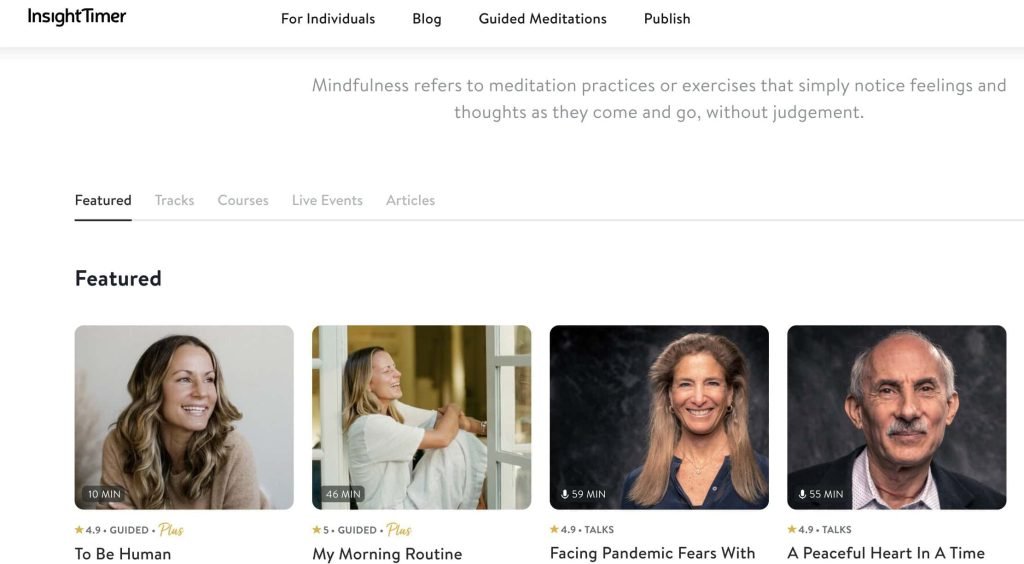To be an empathetic listener, focus on understanding the speaker’s feelings. Show genuine interest and create a safe space for them. This helps improve relationships and boosts understanding between people.
Empathetic listening is more than just hearing words. It means stepping into the speaker’s world and feeling their emotions. This skill is key today, as more people face anxiety and depression. By being empathetic, we offer support to those who need it.
Stephen Covey says “seeking first to understand” is a key change in communication. This idea is the heart of empathetic listening. It’s not just about paying attention. It’s about fully experiencing what the speaker feels without judging them.
Getting better at empathetic listening takes time and effort. It means focusing on both words and body language. Mirroring emotions and validating what the speaker says helps too. By dropping judgment and being curious, we make a safe space for open talks.
Key Takeaways
- Empathetic Listening: Feel the speaker’s emotions, not just their words.
- Support and Understanding: Makes the person feel valued and supported.
- Seek First to Understand: This principle changes how we talk to each other.
- Practice Makes Perfect: Pay full attention, mirror emotions, and validate feelings.
- Build Stronger Bonds: Makes relationships better in both personal and work life.

Understanding Empathetic Listening
Empathetic listening skills are key to good communication. It means more than just hearing words. It’s about really getting what the speaker feels.
Definition and Importance
Empathetic listening means fully diving into what the speaker feels. It helps with emotional support and understanding others better. Studies show that 96% of employees think empathy is key to keeping workers happy.
Empathetic vs. Active Listening
Active listening is about paying attention. Empathetic listening is about seeing things from the speaker’s point of view. It builds closeness and helps people find their own answers.
The Impact on Relationships
Empathetic listening makes relationships better. It shows respect and understanding. This leads to stronger bonds in families, friendships, and at work. Leaders say it’s a top skill for doing well at work.
| Aspect | Impact of Empathetic Listening |
| Employee Retention | 96% believe it’s crucial |
| Non-verbal Communication | Accounts for 70% of communication |
| Brain Activity | Activates social bonding regions |
Improving our empathetic listening skills helps us connect better. It makes our personal and work lives more supportive.
The Four Stages of Empathetic Listening
Empathetic listening is key to good communication. It means understanding both what people say and how they say it. Let’s look at the four stages that can make you more emotionally smart and improve your relationships.
Mimicking Content
The first step is just repeating what you hear. It’s the simplest way to start paying attention. But it’s not the best way to really understand someone.
Rephrasing the Content
Next, you say the speaker’s words in your own way. This shows you’re thinking about what they said. It helps clear up any confusion and shows you’re really listening.
Reflecting Feelings
Now, you focus on the feelings behind the words. By understanding how someone feels, you show you care. This is important for talking openly and safely.
Rephrasing Content and Reflecting Feelings
The best stage combines restating words and understanding feelings. This makes a strong connection, builds trust, and makes people open up. As Otto Scharmer’s Four Stages of Empathetic suggest, this level of listening can change conversations and relationships for the better.
| Stage | Focus | Skill Level |
| Mimicking Content | Words | Basic |
| Rephrasing Content | Understanding | Intermediate |
| Reflecting Feelings | Emotions | Advanced |
| Rephrasing & Reflecting | Holistic Message | Expert |
For freelancers, empathetic listening builds emotional bonds with clients and helps understand their needs better. Learn more about improving client relationships in my freelancing guide here.
Getting good at these stages can really help you talk better and connect deeper with others. Remember, empathetic listening is a journey that gets better with practice.
Practical Techniques for Developing Your Empathetic Listening Skills
Learning to listen with empathy can really improve how we talk to each other. To listen well, I use my eyes, ears, and heart. This helps me support others emotionally and connect deeply.
Here are some tips that help me listen better:
Setting the Ground Rules
Be Genuine & try to really get what the other person is going through. Don’t just listen on the surface. Imagine how you would feel if you were them.
It’s key to remember the goal is to listen and understand, not to give advice or correct them.
Taking Notes
It’s okay to take notes, but focus on the feelings and emotions. Don’t worry about the facts. This helps you connect on a deeper level.
Look for emotional phrases that show how they feel. This makes your connection stronger.
Listen to Verbal and Non-Verbal Communication
People often show their feelings before they say anything. For example, someone might look upset even if they say they’re fine. Watch both what they say and how they say it.
Reflect Back the Feelings
Use Simple Language: Show you get it by reflecting their feelings back to them. Say things like “That sounds frustrating,” or “I can see you’re really happy.” This keeps them talking.
Ignoring Words; Focusing on Feelings
Most communication isn’t what we say, but how we say it. Pay more attention to the tone and body language.
Focus on the feelings and non-verbal cues, not just the words.
Eye Contact Techniques
When talking, look at their right eye to check if they’re defensive. Then look at their left eye to connect on an emotional level.
This helps build a stronger emotional bond and makes them feel more open.
Mirroring Emotions
After listening, reflect back the feelings you noticed. Use kind words to show you get it, without focusing on the details of their story.
This makes them feel heard and valued, encouraging them to open up more.
Empowering the Speaker
After showing you understand their feelings, ask them questions to help them find solutions. Don’t give direct advice.
This helps them figure out their feelings and options on their own, promoting growth and confidence.
Empathetic listening is very powerful when feelings are strong or trust is low. Using these methods has made my relationships better and helped me in many areas of life.
In work settings, I try to talk for 30-45% of the time in online meetings. This balance lets me listen well and get important insights. For sales and customer success teams, empathetic listening builds emotional bonds with customers and helps understand their needs.
Effective listening is a two-way street, fostering dialogue and avoiding misunderstandings.
By practicing these listening skills, I’ve gotten better at communicating and supporting others emotionally. It’s an ongoing process, but the benefits in my personal and work life are clear.
Carl Rogers’s Perspective on Empathetic Listening
Carl Rogers was a key figure in humanistic psychology. He saw empathetic listening as crucial for understanding people’s feelings and offering support. His ideas changed therapy and how we connect with each other.
Complex and Demanding Process
Rogers believed empathy was complex. It’s not just about hearing words. It’s about really getting into the speaker’s world. This requires focus and sensitivity. Empathetic listening means putting aside your own thoughts to understand another’s view.
Entering the Speaker’s Perceptual World
To Rogers, empathetic listening meant putting on the speaker’s shoes. It’s about seeing things from their point of view and feeling their feelings. This connection leads to real understanding and support.
Maintaining Sensitivity and Awareness
Rogers said it’s key to stay grounded while listening. You must be aware of your feelings and thoughts. This balance helps you support others without getting lost in their emotions.
| Rogers’ Key Points on Empathetic Listening | Impact |
| Non-judgmental approach | Creates safe space for open communication |
| Entering speaker’s world | Deepens understanding and connection |
| Maintaining self-awareness | Ensures balanced and effective support |
Rogers’ ideas still influence how we see empathy in psychology and everyday life. His work shows the strength of deep listening in helping us grow and heal.
Overcoming Barriers to Empathetic Listening
Empathetic listening helps us communicate better and build strong bonds. But, many of us face barriers that make it hard to connect deeply. We need to face these challenges to become better listeners.
Recognizing and Eliminating Distractions
Distractions can really hurt our ability to listen well. To get better at listening, we must find and remove these distractions. This means turning off devices, finding a quiet spot, and focusing on the speaker.
Checking Personal Biases
Our own biases can change how we see others’ words and feelings. It’s important to know these biases and let them go. By doing this, we can really understand the speaker, which helps us be more emotionally smart.
Staying Present in the Moment
Being fully in the moment is key to listening with empathy. This means paying attention to the speaker, keeping eye contact, and being okay with silence. By staying engaged, we can catch subtle feelings and emotions, which helps us connect deeper.
| Barrier | Impact | Solution |
| Distractions | Reduced focus and understanding | Eliminate external noise, put away devices |
| Personal Biases | Misinterpretation of speaker’s message | Recognize and set aside preconceptions |
| Mental Absence | Missed emotional cues and details | Practice mindfulness, maintain eye contact |
Use apps like Insight Timer to practice mindfulness.
By tackling these barriers, we can get better at active listening and our mental health will improve. Remember, empathetic listening is a skill that takes practice and patience. With effort, we can change our relationships and communicate more effectively.
Conclusion
Becoming an empathetic listener changes how we talk and connect with others. It makes us better at understanding people and builds strong relationships. By improving our listening, we become more emotionally smart.
This skill lets us create a safe place for others to open up. It helps reduce stress and makes people more likely to share important things.
On my path to get better at listening, I found it’s not just about hearing. It’s about really getting what the speaker means, noticing non-verbal signs, and showing you care. This has made people trust me more and work better with me.
It has also made my work and personal life more welcoming to everyone. I keep working on listening this way because I see how it helps solve problems and improve team work. By really listening, asking good questions, and staying in the moment, tough situations turn into chances to learn and grow together.
This shows me that being good at empathetic listening is key for better relationships and deeper connections. It’s a skill everyone should work on to improve how they interact with others.







